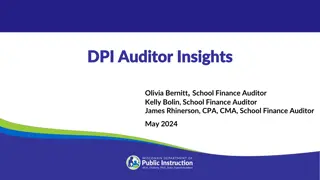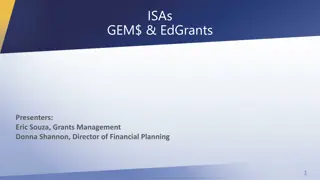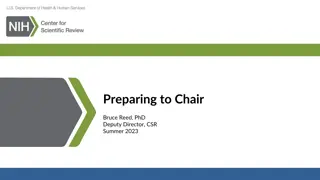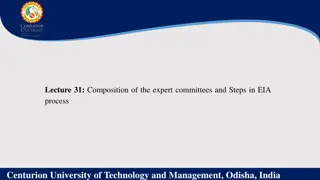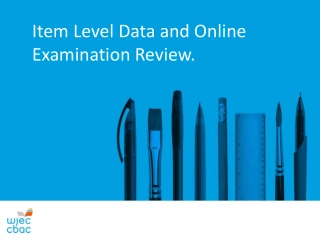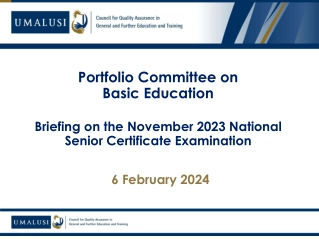Roles of Stakeholders in Examination Process at Benue State University
The examination process at Benue State University involves various stakeholders such as lecturers, invigilators, departmental examination officers, and more. Effective coordination and management of examinations by these stakeholders are crucial for success, credibility, and integrity. Clear guidelines outline the roles of stakeholders before, during, and after examinations to ensure smooth conduct and adherence to set policies and procedures.
Download Presentation
Please find below an Image/Link to download the presentation.
The content on the website is provided AS IS for your information and personal use only. It may not be sold, licensed, or shared on other websites without obtaining consent from the author. Download presentation by click this link. If you encounter any issues during the download, it is possible that the publisher has removed the file from their server.
Presentation Transcript
Examination Process/Administration: The Roles of Stakeholders Presented by Professor Philip Sunday Bagu Deputy Director, Quality Assurance Directorate of Academic Planning and Quality Assurance, Benue State University, Makurdi At the Two-Day Capacity Building Workshop Organized by the Management Committee of Benue State University, Makurdi for some Senior Academic and Administrative Staff On the Theme: Strategies for Reinvigorating Academic and Administrative Excellence in Benue State University Held on 19th and 20th July, 2023 @ College of Health Sciences Auditorium
Introduction An examination is a procedure or device for confronting students with a set of uniform questions or tasks to which they are to respond independently and the results subjected to treatment in such a way as to provide quantitative comparison of the performance of different students. The information or result provided by examination is used for the purpose of classification, promotion, certification, selection, prediction, verification, evaluation and counseling. (Makinde 1988) Stakeholders in the Examination Process/ Administration in Benue State University, Makurdi The key stakeholders in the Examination process/ administration in Benue State University are listed as follows: Lecturers / Invigilators Departmental Examination Officers Heads of Departments Faculty Examination Officers Deans of Faculties Senate Business Committee (SBC) Senate
The Roles of various Stakeholders in the Examination Process/Administration in Benue State University The success, credibility and integrity of the examination process purely depend on the effective coordination and management of examinations by all stakeholders. To achieve success in the conduct of examinations, there are examination administration guidelines which are set of policies and procedures that outline how standardized examinations should be organized and administered in the university. These processes clearly specify the various roles of stakeholders before, examination. during and after
A.Duties of the Chief Invigilator/Invigilators During and After Examination i. The Chief Invigilator should report to the examination office at least 40 minutes before the commencement of the examination to collect examination materials (question papers, answer booklets, attendance list etc) ii. Invigilators should ensure that all candidates for the examination are duly checked and admitted into the examination halls. iii. Invigilators are to ensure that candidates do not take bags mobile phones and other unauthorized electronic devices into the examination hall. iv. The chief invigilator should remind candidates of the rules guiding the conduct of the examination and the documents they need for identification
A. Duties of the Chief Invigilator/Invigilators During and After Examination (continues) v. Invigilators are to distribute the answer booklets before distributing the question papers faced down. Candidates shall be allowed few minutes to ensure their personal details, title of the paper to be written, examination number, semester and session in the spaces provided. vi. Invigilators should ensure that students do not write their names on the answer booklets. vii.Invigilators should ensure that students who sit for the examination fill the attendance list and confirm that the number of students on the attendance lists and the number of scripts match. viii.The chief invigilator should start the examination at the stipulated time.
A. Duties of the Chief Invigilator/Invigilators During and After Examination (continues) ix. Activities carried out by invigilators in the course of the examination should be done as quietly and discreetly as possible. x. Invigilators should remain in the examination hall throughout the duration of the examination. xi. Invigilators shall carry out unobtrusive and periodic patrol of the examination hall so as to put candidates in check. xii. Invigilators shall not admit candidates into the examination hall 30 minutes after the commencement of the examination. xiii. The invigilator shall ensure that no candidate leaves the hall and is subsequently readmitted into the hall within the first 60 minutes of the commencement of the examination.
A. Duties of the Chief Invigilator/Invigilators During and After Examination (continues) xiv.In an event of any suspicion of examination misconduct or irregularity, the invigilator shall collect and annotate the script to show the point at which the offence occurred, confiscate any illicit or suspicious material and go on to document the evidence. He shall request a second invigilator, the offender and other candidates around the offender to serve as witnesses. The candidate should thereafter be allowed to continue with the examination. xv. The invigilator should ensure that candidates who are seen conferring or exchanging items are reprimanded, and if they persist, their scripts should be collected and annotated to show the point at which the offence occurred. The candidates should be allowed to continue with the examination thereafter.
A. Duties of the Chief Invigilator/Invigilators During and After Examination (continues) xvi.The invigilator shall announce the time left for the examination midway through and 30 minutes to the end of the examination. xvii.The invigilator shall direct all candidates in the hall within the last 15 minutes of the examination to remain seated and be silent even when they have finished until the end of the examination when their examination materials would have been collected. xviii.Under no circumstances should a junior staff be allowed to invigilate University Examinations. They shall only act as attendants at examinations under the strict supervision of a duly appointed invigilator.
A. Duties of the Chief Invigilator/Invigilators During and After Examination (continues) xix.Invigilators shall cross-check the scripts collected at the end of the examination with the attendance register and manually count students to ensure that all scripts have been accounted for. xx. Enclose the scripts, attendance list and six (6) copies of question paper in envelopes and submit same to the Head of Department. xxi.Submit a formal report (on a report form) on the conduct of the examination and any report of examination misconduct to the Head of Department.
B. Duties of the Departmental Examination Officers Before, During and After Examination The Departmental Examination Officer shall work closely with the Head of Department in carrying out the following duties: i. Draw up Examination Timetable and invigilation schedule for the Department. ii. Procurement of adequate examination materials (answer booklets/OMR sheets) iii. Produce and package all examination materials such as question papers, candidates attendance sheets and report forms for all Departmental examinations. iv. Ensure that each package is properly labeled with the following information; course code and course title, the date, time and venue of the examination, names of the invigilators, and number of question papers enclosed.
B. Duties of the Departmental Examination Officers Before, During and After Examination (continues) v. Ensure that packaged question papers are properly secured. vi. Ensure that examination materials are assembled ahead of time for each examination vii. Be in the examination office at least 45 minutes before the commencement of every examination to issue examination materials to the chief invigilator. viii. Be in the examination office at the end of each examination session to collect answer booklets and left over materials from the invigilator. ix. Prepare results according to Senate approved format for consideration by the Departmental and Faculty Boards and the Senate.
C. Responsibilities of Heads of Department Before, During and After Examination i. Organize an orientation for fresh students to ensure that students understand the rules and procedure for handling examinations in the University. ii. Collect data on registered students for use as guide in processing and production of examination materials to avoid shortages and wastages. iii. Issue notices to staff at least 4 weeks before the commencement of examination requesting them to submit examination questions and marking scheme. iv. Collect and moderate questions before the final production. v. Acquire enough examination materials prior to the commencement of examination. vi. Monitor the production and safety of examination question papers
C. Responsibilities of Heads of Department Before, During and After Examination (Continues) vii. Appoint examination invigilators and chief invigilators among the academic staff of the department. viii. Supervise the conduct of the Departmental examinations ix. Forward reports of examination misconduct received from invigilators immediately to the Vice-Chancellor through the Dean within 24 hours of receipt of the complaint. x. Ensure the grading of scripts and compilation of results within the stipulated time. xi. Present departmental results to the Departmental Boards and Faculty Boards for consideration and recommendation to Senate. xii.Ensure the release of results to students after consideration by the Faculty Board and produce copies for consideration by the Senate.
Responsibilities of Heads of Department Before, During and After Examination (Continues) x. Ensure that Continuous Assessments are marked and returned to students before the commencement of semester examinations and proper records of the results are kept. xi. Ensure that the Senate approved format for setting essays, multiple choice questions and structural questions are strictly adhered to. xii.Ensure the proper development of Marking Schemes, with marks attached, are strictly followed in the grading of the scripts. xiii.Completely eradicate or bring to the barest minimum, the practice of duplicating the entire examination questions in the past or consecutive sessions.
D. Duties of the Faculty Examination Officer The faculty examination Officer shall: i. Carryout all directives of the Dean in relation to examination matters ii. Participate in the supervision of examinations in the Faculty iii. Communicate all decisions of the Senate Business Committee to departments and Faculty iv. Handle any other examination related duties that may be assigned to him from time to time v. Custodian of all examination questions and documents.
E. Duties of the Faculty Dean 1. The Dean shall 4 weeks to the end of the semester based on the Senate approved academic calendar, cause the Faculty Examination Officer to meet with the Departmental Examination Officers and the Faculty Officer (Secretary) to: a. Review the number and capacities of examination halls available to the Faculty b. Review the number of candidates for Faculty wide and other Departmental courses c. Allocate halls/days for Departmental examinations d. Drew up an examination time table that would minimize conflicts. e. Draw up an invigilation time table based on: i. A minimum of two (2) invigilators per hall up to 60 candidates ii. One (1) additional invigilator for each additional 30 candidates
E. Duties of the Faculty Dean (continues) a. Ensure that the examination time table and the invigilation schedules reach all Faculty staff involved in the conduct of examinations not later than a week to start of the examination. f. Supervise the conduct of the examination along with the Heads of Department, the Faculty Examination Officer 2. Forward all cases of examination irregularities and misconduct from Departments to the Vice-Chancellor immediately 3. Preside over all Faculty Examination results of Faculty Boards Meeting and recommend to Senate.
Persistent Challenges that Undermine the Successful Conduct of Examinations in Benue State University i. Inadequate examination venues leading to overcrowding in examination halls ii. Difficulty in ascertaining the actual number of registered students for different courses due to continues Registration of Students iii. Shortage of question Papers iv. Lateness/ absenteeism of invigilators v. Shortage of invigilators vi. High number of cases of examination misconduct and irregularities.
Conclusion To ensure a successful conduct of examinations in the University; it is imperative that all the stakeholders carry out their specified roles and regulations diligently.
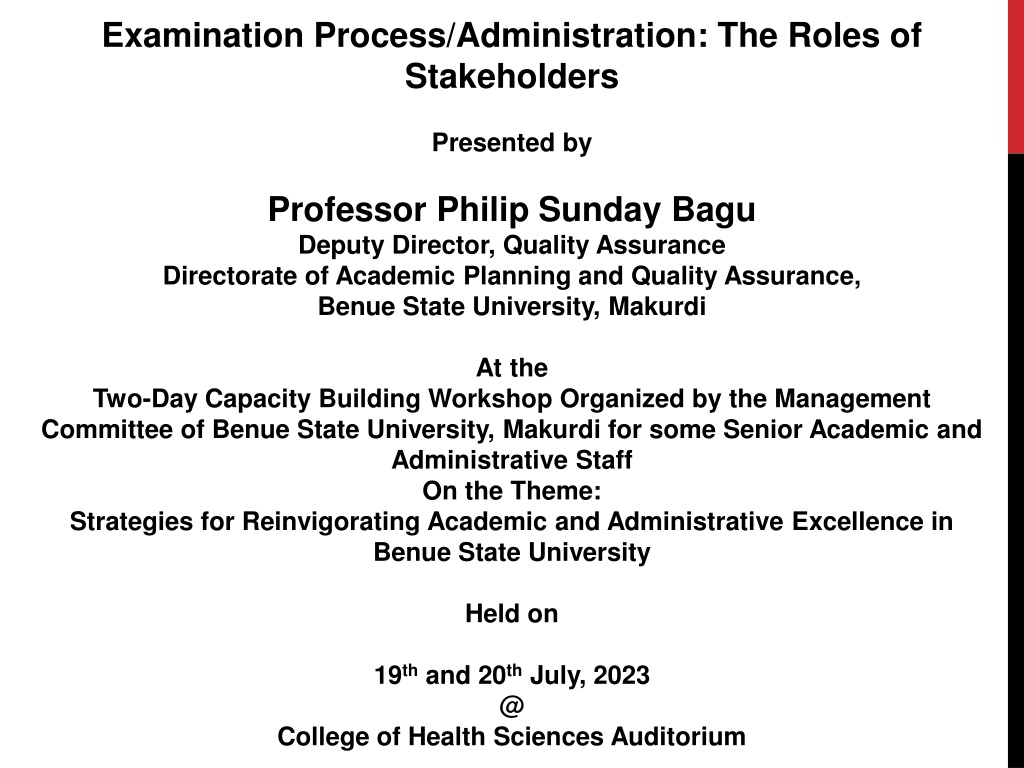

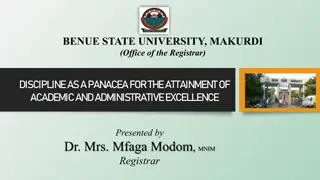

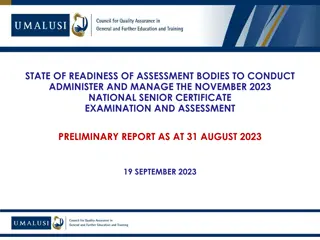
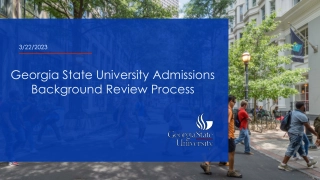



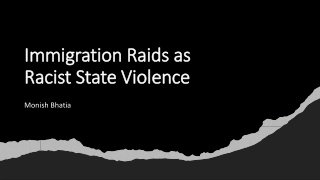
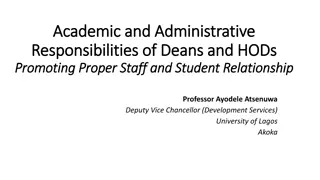
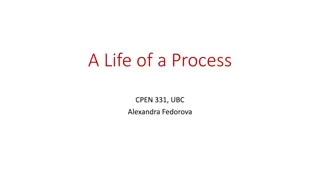





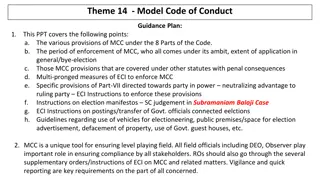











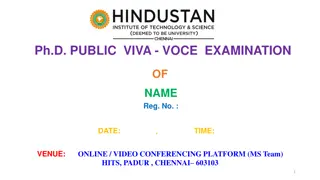

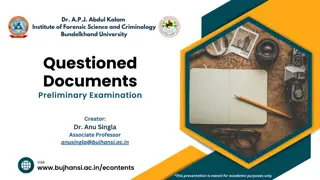
![Stakeholders' Responses to National Health Insurance Bill [B.11B-2019]: Overview](/thumb/69945/stakeholders-responses-to-national-health-insurance-bill-b-11b-2019-overview.jpg)



